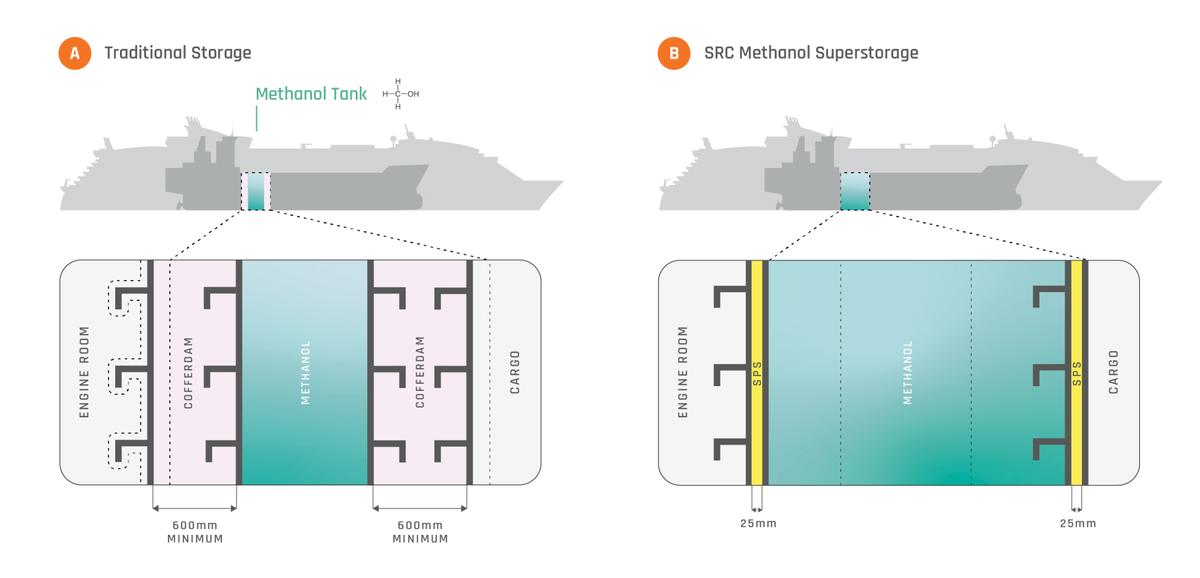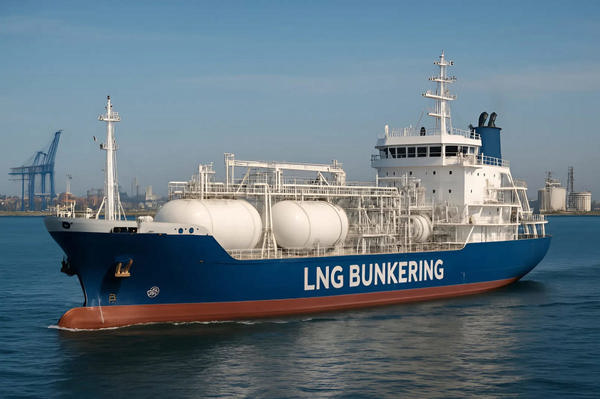Green Marine and SRC partner to supply methanol storage tanks
Danish project management firm Green Marine and Estonian marine engineering company SRC Group have partnered to supply onboard methanol storage tanks.
 PHOTO: Conceptual image of SRC's methanol storage tank fitted on a ship compared to traditional methanol storage. SRC
PHOTO: Conceptual image of SRC's methanol storage tank fitted on a ship compared to traditional methanol storage. SRC
The partnership plans to utilise SRC’s methanol storage technology rather than traditional methods involving cofferdams to separate tank walls. A cofferdam is an enclosure or void within a vessel used to store and contain low-flashpoint fuels. It is designed to prevent the accidental leakage of fuels that can result in contamination and fire. However, using a cofferdam can reduce the capacity of a methanol fuel storage tank and cargo space onboard a vessel.
SRC's storage system optimises the use of shipboard tank capacities and effectively addresses the lower energy density of methanol compared to conventional fuels.
Its storage system uses two metal plates bonded with an elastomer core. An elastomer core is a synthetic polymer having elastic properties. The technology eliminates the need for a cofferdam and allows the use of about 85% of the fuel tank's volume capacity when storing methanol onboard vessels.
The methanol conundrum
According to classification society DNV, methanol has a volumetric energy density approximately 2.5 times lower than conventional marine fuels like VLSFO or MGO, and 1.3 times lower than liquefied natural gas (LNG).
Consequently, ships powered by methanol need to consume 2.5 times more fuel to cover the same distance as those using VLSFO or MGO. This also necessitates methanol fuel storage tanks onboard ships to be 2.5 times larger than VLSFO and MGO tanks.
Larger fuel tanks occupy more space, potentially impacting the ship's cargo capacity and operational efficiency.
Methanol gaining steam as marine fuel
There are already 35 methanol-capable ships in operation and another 269 ships on order for delivery towards 2028, according to DNV's database.
This week, Japanese shipping companies Toyofuji Shipping and Fukuju Shipping ordered two methanol dual-fuel roll-on/roll-off (RoRo) vessels from Mitsubishi Shipbuilding, a subsidiary of Mitsubishi Heavy Industries (MHI). Also, this week, Chinese shipping firm Guoneng Ocean Shipping launched a methanol dual-fuel inland bulk carrier.
By Tuhin Roy
Please get in touch with comments or additional info to news@engine.online






